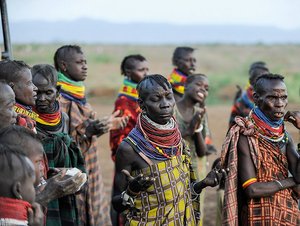Agroecology

XXXXXXXXXXXXXXXXXXXXX
- Between aspiration and reality(2024)
- "Brazilian society should be proud to have 305 Indigenous Peoples and 274 indigenous languages"(2024)
- Traditional knowledge and intellectual property (2024)
- The legacy of colonialism is still there(2024)
- Reconciling the green energy transition with the rights of Indigenous Peoples(2024)
- FPIC protocols – rebalancing power by changing the rules of the game?(2024)
- Haki Ardhi – the women’s land rights reporting tool (2024)
- The Indigenous Navigator – data for and by Indigenous Peoples(2024)
- Collective efforts for successful advocacy(2024)
- Combining indigenous knowledge with meteorological expertise (2024)
- Rewarding ecosystem services – an example from Central America(2024)
- Indigenous women’s rights are human rights!(2024)



